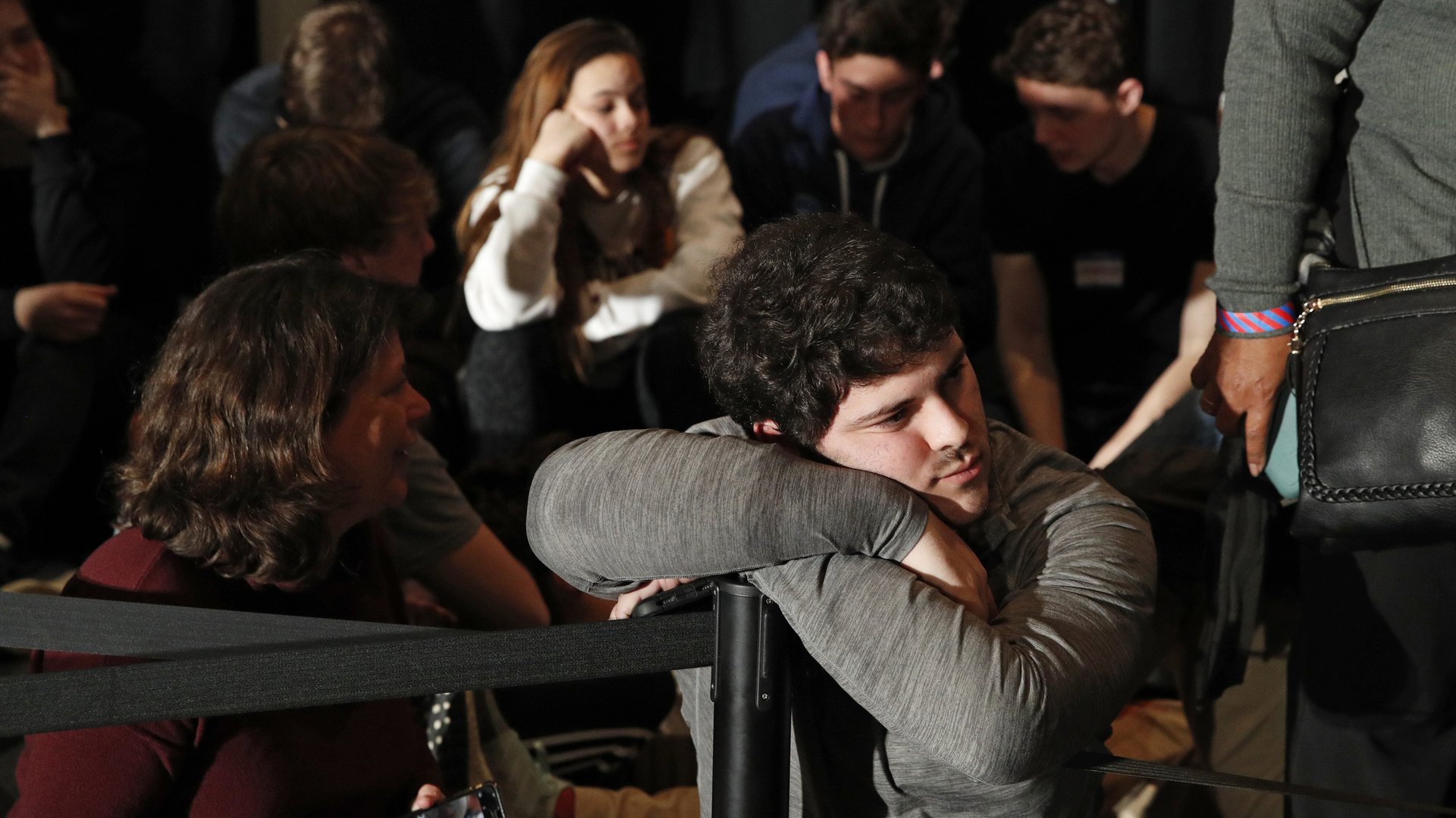Here’s what international election observers have to say about the Iowa caucuses
Days after Democratic Party voters in Iowa walked into their caucuses to vote for their presidential nominee, the results are still incomplete.


Days after Democratic Party voters in Iowa walked into their caucuses to vote for their presidential nominee, the results are still incomplete.
A newly-introduced app prevented the proper transmission of the results. Jammed phone lines caused further delays. The Iowa Democratic Party managed to release the certified results of 62% precincts on Tuesday. More results trickled on on Wednesday. But final results remain a mystery.
At the moment, none of the candidates have called into question the fairness of the process. But there is no clear timeline in place for when the remaining votes will be released, nor much clarity as to what could possibly be taking so long: After all, fewer than 200,000 people voted on Monday. The results that have been released are being disputed. Rumors are spreading, and so are conspiracy theories.
Such technical failures and delays are the kind of things that raise red flags among international election observers monitoring polls in democracies less established than the United States.
“The Iowa caucuses reflect some of the challenges that we see in so-called developing democracies,” David Pottie, an international democracy and election consultant, told Quartz. “All countries are on a spectrum of democratic development, and the US is no exception.”
It is important to note, Pottie says, that the primaries aren’t national elections: They are an intra-party form of democracy, which as such isn’t subject to national or international rules. But while the Iowa debacle may not indicate a need to add the United States to the list of countries requiring UN election monitoring, it does reveal some serious shortcomings in the way the country holds its votes.
According to the 2005 Declaration of Principles for International Election Observation (pdf), which was adopted by the UN and other international bodies, there are a few principles that need to be taken into account to ensure an election is fair, trustworthy, and effective—namely inclusion, transparency, and accountability.
When it comes to the newly-introduced technology, election experts told Quartz that there should be standards in place for how it’s rolled out, and in Iowa, those standards weren’t met.
Any changes in the way votes are cast, collected, or tabulated, they said, should be done to build more trust with the electorate, not the opposite. To ensure it does, an observer would check:
- Whether the party brought the candidates and voters into a discussion on whether or not to adopt the new technology, and how.
- Whether the procurement process found experienced, trustworthy and nonpartisan vendors.
- Whether the rollout included enough testing and training.
- Whether there was a backup plan.
The Iowa caucuses failed the first three points. And while they had a back plan, it didn’t work.
Technical failures aren’t unheard of in elections. Both the 2013 presidential election in Kenya, for instance, and the 2016 national elections in Ghana, faced significant tech issues. The outcomes of those elections show just how important it is for electoral bodies to handle the crisis effectively.
In Ghana, the government promised to make election results available almost instantly on a government portal. When that didn’t happen, conspiracy theories emerged (the opposition believed they had the lead and suspected the government was stalling). But the election commission reassured voters that there was a paper trail of all votes cast, and that it would be able to recount and guarantee accurate results within a few hours. The transparency of communications helped alleviate voter concerns.
The tech failure in Kenya was worse: A computer-based system of roll-keeping was deployed irrespective of the lack of access to sufficient electricity, and a system of identification based on biometrics crashed, too. Kenya has a history of disputed elections, so Kenyans already lacked trust in the system. Communication from the election commission was inconsistent, which led to tension and, eventually, violence. The country was forced to hold a recount and certify the results at the country’s supreme court—not an ideal outcome. The whole process ended up eroding the trust of voters.
In Iowa, confusion over the the reporting of results, and a lack of clarity about why it’s taking so long, has already begun to erode the trust some voters have in the US system. Election officials in Iowa originally said the delays were due to efforts to control the quality and accuracy of the results. But days later, major inconsistencies remain.
“There doesn’t seem to be an issue of legitimacy of the process,” Pottie said of the election in Iowa. “But rather a problem of documentation and transmission.” Other experts agree: As things stand, there doesn’t seem to be a reason to question the fairness of the vote—and no candidate has done that—but that doesn’t mean what happened won’t have broader consequences.
It’s the erosion of trust that, observers note, is the biggest danger in Iowa—and possibly beyond. While candidates and their supporters may not spend much more time dwelling on what happened, since the number of delegates at stake is small and may not be worth more political investment, experts warn that getting to the bottom of what didn’t work it, and addressing it transparently, is of paramount importance to gain back some of the lost faith.